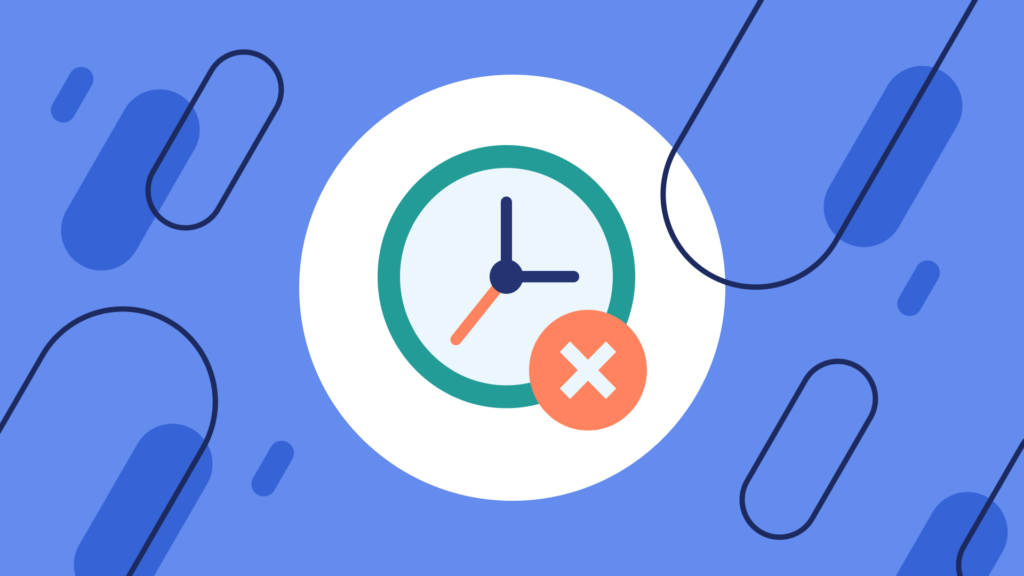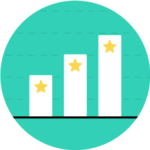Your customers are talking. Are you listening?
This unfiltered, renewable source of insights accounts for every customer voice – even those who don’t respond to surveys.
Start Listening
Authenticx analyzes customer conversations to surface recurring trends.

Leverage your existing data for actionable intel.
Improve real-time response and quality scores across contact centers by listening to customer interactions at scale.
See Authenticx in ActionHealthcare Data Analytics
Businesses in various industries from all over the world are steadily discovering the numerous potential benefits of developing greater data analytics capabilities, and this is largely true for the healthcare industry as well. As more and more streams of new data are developed and implemented, businesses in healthcare and elsewhere are straining to keep up with analytics processes and trying to extract valuable insights from a seemingly relentless stream of information.
Before recent advancements in artificial intelligence (AI) and machine learning (ML) technology, many of the ways in which businesses collected and analyzed data were labor-intensive, slow, costly, and took up way too many resources. Now, thanks to numerous technological advancements, many data analysis initiatives are automated or expedited with the health of AI or ML systems. Artificial intelligence can comb through large volumes of data with relative quickness and ease compared to human analysts. And when organizations combine the speed and efficiency of AI or ML systems with the knowledge and expertise of human beings, data analytics can improve business operations at virtually every level.
Healthcare data analytics refers to the process by which healthcare organizations utilize and leverage data in order to optimize various aspects of the business. In the healthcare industry, patient data can help doctors and nurses provide better care, and patient data can also help identify trends in healthcare. Other forms of healthcare data could include information about staff and personnel and transactional information as well. But with so many different types of data and so many possible insights to glean, it can be difficult for healthcare companies to know where to begin.
Additionally, there are many ways industry professionals can receive a healthcare data analytics certification online for healthcare providers and other healthcare experts interested in receiving a healthcare data analytics certification or a healthcare data analyst certification. By signing up for a healthcare data analytics course (either in person or online), an individual could quickly receive certification and learn more about how healthcare companies can benefit from data analysis.
Timeliness and accuracy of information are important in numerous industries, but this is especially true in healthcare where speed and accuracy can be the difference between life and death. Data analytics in healthcare seeks to acquire greater volumes of more accurate data about sensitive information to ensure that patients receive the best possible care, medical staff and personnel are properly trained and vetted, and transactions are processed correctly and in a timely manner.
Data Science
In healthcare applications, data science can refer to the collection and processing of significant amounts of data – whether structured or unstructured – in order to provide insights into how well a healthcare organization is performing. Collecting healthcare data can be a very powerful tool to help organizations determine levels of customer satisfaction. And there are numerous ways of collecting customer experience data beyond sending out customer satisfaction surveys. Many modern healthcare companies have implemented apps that can act as a kind of go-between for patients and healthcare providers. Every time a user opens or interacts with the app, that information is analyzed and any relevant insights are shared with the appropriate teams.
Data can also be a huge asset for healthcare marketing initiatives; if there are certain health issues or surges in various illnesses or diseases in a particular region, for instance, or among a certain population, healthcare marketing teams can identify these trends from data analytics and develop robust marketing campaigns and patient outreach initiatives when necessary. Many healthcare professionals understand how important data can be in recognizing patterns in symptoms to determine the cause; data is useful for the science behind modern medical treatments, and it can help support healthcare businesses as well.
Healthcare data analyst requirements generally include an advanced degree, proficiency with database languages like SQL, and experience with data visualization practices. A healthcare data analyst can generally be expected to be able to compile and organize healthcare data and analyze that data in order to provide support for healthcare management teams and meet the goals or objectives of the administration, as well. Prospective healthcare data analysts could also take a health data science course online to bolster their resumes and learn more about how data can improve many facets of the healthcare industry.
Health Analytics
As an introduction to healthcare data analytics, many healthcare professionals are required to take a course on health analytics. Health analytics can refer to many of the techniques used to collect and analyze qualitative and quantitative data to support both healthcare providers and healthcare organization staff. The ultimate goal of many data analytics initiatives (even beyond the scope of the healthcare industry) is to come up with actionable insights and for healthcare organizations especially – improve basic healthcare decisions.
Healthcare data analytics books or health informatics and data analytics can also help to provide a better sense of how data analysis can improve healthcare facility operations, patient experiences and satisfaction levels, and much more. Analytics applications can also help to improve scheduling for staff members as well as administrative operations like patient appointment scheduling, for example.
One aspect of healthcare analytics that can be particularly beneficial is the capability for predictive analytics. In healthcare settings, predictive analytics can potentially help identify the likelihood a patient will develop a particular health condition based on historical data, for instance. Predictive analytics can also help streamline treatment regimens and potentially reduce readmissions for hospitals.
Ultimately, health analytics endeavors seek to provide a better experience for the patient as well as the healthcare professionals responsible for the well-being of the said patient. Improving patient experiences can not only benefit the quality of care they receive but can also make it more likely that a patient would return to a specific facility for care or refer that facility to a friend or loved one.
There are countless benefits of data analytics within the healthcare industry. When other businesses utilize data analytics, they can improve workflows, enhance products and services, and increase revenue streams. When healthcare organizations utilize data analytics, they can provide better healthcare to patients, save doctors and other medical professionals time and energy, and support the administrative staff who work tirelessly to help keep facilities organized and running smoothly.
How It Works
Gain a deeper level understanding of contact center conversations with AI solutions.
Learn MoreAggregate
Pull customer interaction data across vendors, products, and services into a single source of truth.
Analyze
Collect quantitative and qualitative information to understand patterns and uncover opportunities.

Activate
Confidently take action with insights that close the gap between your organization and your customers.
Healthcare Data Analytics Companies
It’s no secret that data can drive the success of many modern businesses. Healthcare organizations can experience similar success by implementing healthcare analytics systems and giving their teams the tools they need in order to succeed. From healthcare data analytics companies to pharmaceutical analytics companies, more organizations within the healthcare industry are recognizing the value of data. As such healthcare data aggregation companies and healthcare data startups have proliferated.
Companies like Authenticx make it very easy for healthcare companies to implement a system that can collect, organize, and analyze patient and customer data. Authenticx also supports a Speech Analyticx feature, which can identify key metrics of both customer and patient interactions, sentiments, conversations, and similar reports so that healthcare professionals can readily analyze the data and derive actionable insights therefrom. And when healthcare and medical professionals have better tools at their disposal, they are more able to provide patients with better quality care.
But healthcare companies also face many challenges when it comes to data analytics infrastructure. Oftentimes, challenges surrounding data storage (or having sufficient space for data storage), cybersecurity, data cleaning, and formatting are too formidable for healthcare companies to tackle on their own. This is where automation efforts and artificial intelligence or machine learning can really shine. AI can reduce the cost, time, and labor involved in organizing and cleaning data sets, and organizations like Authenticx with ample data analytics experience can help healthcare companies determine a solution that works for their situation.
Healthcare Analytics Software
Healthcare data analytics programs and healthcare analytics software can help healthcare providers do what they do best and focus on providing the best possible care for their patients.
Healthcare data science programs can also reduce the number of clinical and financial errors, leading to fewer misdiagnoses and readmissions. Healthcare analytics software can also foster a culture of greater transparency which has been shown to improve employee performance and accountability. And by taking a healthcare analytics course online, industry professionals can get a better sense of the many capabilities and benefits of healthcare analytics initiatives.
Analytics software in the healthcare industry can provide doctors and other medical professionals with valuable insights into patient care. At the end of the day, the goals of the healthcare industry are pretty straightforward: provide patients with the care they need in order to live safe, healthy lives. If improving data analytics capabilities at a healthcare organization can make life easier for the staff, medical professionals, and the patients they serve – why not find a healthcare analytics platform that addresses your organization’s specific needs?
Numerous businesses outside of healthcare understand how valuable data can be; for now, it seems like data will continue to be the primary driver of optimization and improvement strategies. Until the next technological advancement comes along, healthcare organizations would be wise to implement some sort of healthcare analytics platform to help manage and improve daily operations.